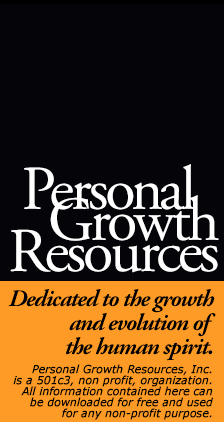|
Letting Go of the "Till Death Do Us Part" Myth CONTINUED |
The conclusions I have reached about the effect of divorce on the well-being of children is that it is
impossible to make sweeping generalizations. Every family is beset with a unique set of circumstances and
there are no across the board answers as to what effect, positive or negative, divorce will have on a given
family. Most certainly, due to the many difficult logistical problems inherent in divorce, couples with children
should make every attempt to heal the problems in their marital relationship so as to keep their family intact.
However, "irreconcilable differences" is for some marital couples a reality that years of marital counseling will
not change. If a marital relationship changes such that the partners are no longer capable of meeting one
another's needs, divorce can be the best option for both themselves and their children. As more and more people, through the decades, have struggled with the dilemma of unhappy marriage vs. divorce, couples are learning to deal with divorce in increasingly healthy and positive ways. We are seeing more and more divorces where the parents are maintaining positive ex-spousal relationships with one another and participating in workable joint custody arrangements. Divorced parents are learning how to coordinate their lives geographically to allow each parent to be an integral part of the children's lives. It would certainly be ideal if there were no need for divorce, particularly when children are involved. It would be nice if couples did not have to be confronted with two negative options: remain in unhappy marriages or endure the negative aspects of broken family arrangements. I think that, as a society, there is much we can do to decrease the need for divorce. We can attempt to raise people to be healthier; to have strong self-esteem, greater self-awareness etc., so people are more capable of making healthy choices regarding their marriage partners. We can encourage people to participate in pre-marital counseling so they are better prepared for the complexities of marriage. We can teach people good communication and conflict resolution skills. We can encourage people to marry later in life, after they have a clearer and more solid sense of themselves, and thus have a better chance of choosing a parenting partner with whom they will be able to maintain a satisfying and workable long-term relationship. All of this would help decrease the need for divorce. However, I conclude that, even in a society of highly evolved, extremely healthy human beings, divorce would still exist. Even two people who have a very satisfying and viable marriage for ten or twenty years, may grow and change as people and find that they can no longer meet one another's needs. I firmly believe that during the centuries when we had a very low divorce rate we also had a very high level of unhappy marriages. Many downright miserable marriages lasted in the past because people were taught that it was a sin to terminate a marriage. A substantial number of marriages will continue to end in divorce, even when children are involved. By acknowledging the possibility of divorce, couples will be better equipped to deal with divorce in a healthy manner if they need to. < Previous Next >
GO TO TOPIC:
Introduction Does Government-Regulated Marriage Makes Sense? The Negative Side of Governmental Regulation of Marriage Customizing Your Marriage Contract With a Prenuptial Agreement Deciding Whether Legal Marriage Is the Right Option for You Letting Go of the “Till Death Do Us Part” Myth Who in Our Society Should Perform Marriage Ceremonies? We Need to Remove the Sexism from Marriage Rituals The Need for Parenthood Ceremonies Support for Gay Marriages What About Sexually Open Marriages / Relationships? Marriage Ceremony for Couples Intending to Have Children. Marriage Ceremony for Couples Not Intending to Parent A Lesbian Marriage Ceremony A Gay Marriage Ceremony Marriage Ceremony for a Senior Couple |
This site owned and operated by: Susan M. Mumm, MA, Licensed Professional Counselor
info@personalgrowthresources.org | Personal Growth Resources, Inc. | Ann Arbor, MI | (734) 913-5859
